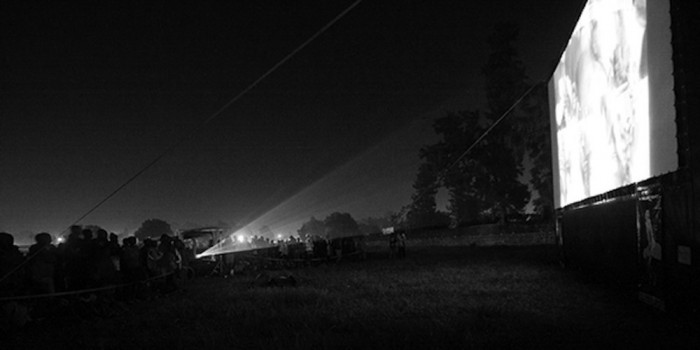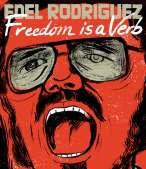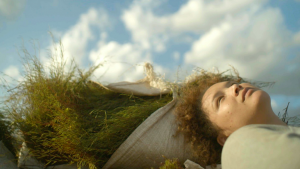
Twenty years ago, all cameras were on Rwanda as it descended into chaos. Rwandans were seen on screens across the world, but none were behind the camera themselves.
Today, that’s changing. A small but eager group of young filmmakers are telling their own stories, in their own ways.
Last week, these young filmmakers were put in the spotlight as the tenth edition of the Rwanda Film Festival kicked off. Held atop one of Kigali’s newest skyscrapers, the VIP guest list at the opening ceremony mingled to the clinking of wine glasses.
But the Rwanda Film Festival wasn’t always this glamorous.
Ten years ago, and only ten years after the genocide, Rwanda Cinema Centre (RCC) put on the country’s first-ever film festival. Travelling the countryside, the Festival reached every corner of Rwanda. With a massive inflatable screen, it brought short and feature-length films, made by and for Rwandans, in the local language of Kinyarwanda, directly to the people. Thousands of villagers came down from the hills at sundown, through rainstorms, gathering on muddy football pitches and crowding into stadiums for the free screenings.
In was in these early days that the festival gained recognition around the continent, as well as a nickname: Hillywood.
Eric Kabera, a young refugee who began working with foreign media on his return to Rwanda after the genocide, founded RCC in 2002 out of his backyard after noticing the glaring lack of media production skills among his peers.
With a keen understanding of the power of the media, and of video in particular, Kabera founded RCC with broad objectives: “to educate, empower, expose, and entertain” the Rwandan people through film.
RCC, now renamed Kwetu Film Institute and housed in a bright orange building in Kigali’s most expensive suburb, runs a series of three-month, crash-course film classes and sees about 100 students rotate through its doors each year. Downstairs, the smell of freshly ground coffee from “Café Hillywood” wafts through an open-air courtyard, and upstairs, the country’s next generation of filmmakers sits behind heavy wooden doors, writing, editing, and producing tomorrow’s films.
This year, screenings are only taking place in two locations outside of the capital: Musanza in the north and Rwamagana in the east. While the festival may have lost some of its grassroots, for-the-people feel, it features a larger array of locally made films, and has brought Rwandan films to a more diverse, cosmopolitan audience.
It’s not easy to sustain oneself as a filmmaker anywhere, let alone in East Africa.
It’s still hard. As soon as we’re open to more foreign productions, it will help establish new markets, says festival director Romeo Umulisa.
Making films and selling films are, of course, two very different things, especially in a country whose first cinema just opened last year. “We have a fight on two grounds: being able to produce something, and getting people to watch it… I want to see Rwandans buying Rwandan films,” says Umulisa.
But some Rwandan films have managed to “make it big” outside of the country. Kivu Ruhorahoza’s 2011 film Grey Matter debuted at the prestigious Tribeca Film Festival in New York City to much critical acclaim.
Filmmaking came naturally for Ruhorahoza. It’s part of his culture: “In Rwanda we have very rich and complex poetry. And we got used to poetry being complex and sophisticated. I don’t see why we cannot apply that level of rigour to our films,” he explains.
More important than striking it rich, is creating something original, says Ruhorahoza.
“It is dangerous to think of cinema in purely economic terms. These corporate dreams of ours are dangerous. You need to fund culture. It’s not wasted money,” he insists.
I can’t complain about amateurism in the film industry. I complain about the stereotypes, the simplistic plots, the lack of critical thinking, he adds.
Kwetu is increasing its intake of students, and this month, is establishing a two-year diploma program in partnership with Deutsche Welle Academy, promising more and better trained filmmakers. Whether or not these young hopefuls make it from Hillywood to Hollywood, they will be documenting their own stories, on their own terms.
“In Rwanda, we sort of got cut off from our elder generations [because of the genocide],” explains Umulisa. “Therefore, I don’t have a reference. I have to recreate everything, my history, my own past, and my way of seeing my own future… It will be up to Rwandans to show other people what kind of stories they have to tell.”






